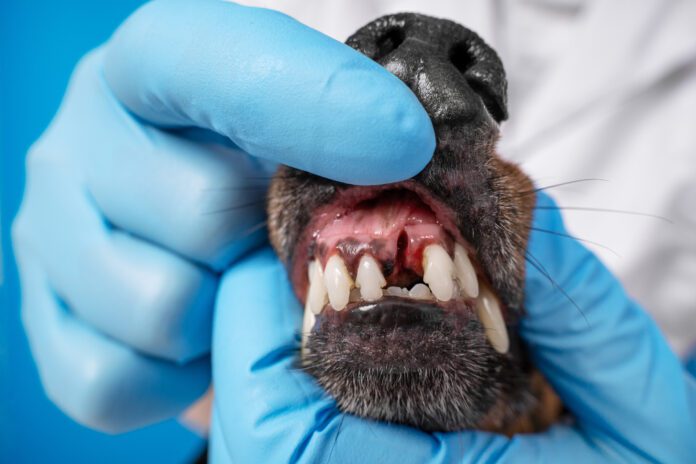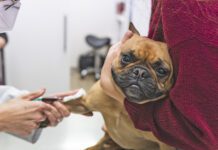Tooth loss in common in older dogs, and the primary cause is periodontal disease. That’s an infection of the tissues around a tooth, sometime also involving the gums. And, if the gums are bad, the teeth will lose their grip, too.
Obviously, you can’t do anything about the teeth your dog has already lost—well, you can, but it’s unlikely you want to pay for implants for your dog—but you can help prevent, or at least delay, further tooth loss with preventive care.
Daily brushing with a doggy toothpaste—never human toothpaste—is a great start. Many good dental products are available to help keep your dog’s teeth and mouth in good shape, including additives to food and water, appropriate chew items, and even special foods. The Veterinary Oral Health Council has a list of recommended products.
Infection
If your dog’s mouth is infected, it’s important to get that under control by seeing a veterinarian. Antibiotics with a probiotic chaser are usually prescribed. Your veterinarian may also recommend a professional cleaning.
If your senior dog is losing teeth, don’t panic. Dogs can handle the loss of many, if not all, teeth and still have good quality of life. Your dog will be healthier and happier if the diseased teeth are removed.
Help Eating
Often the first teeth to go are the small incisors in front. Most dogs never skip a beat and often owners never notice the loss. The loss of the large canine teeth can hinder a dog a bit in that it can be more difficult to pick up or carry items, but most dogs are resourceful and still manage, if it is something they want to carry. The loss of premolars and molars mean less chewing ability, but many dogs more or less gulp and swallow their food be it raw or kibble anyway.
If your senior has trouble chewing, add warm water to his meals, which is a good idea anyway as most senior dogs can use some help with hydration. Consider switching to softer, easy to swallow treats for training and rewards.






